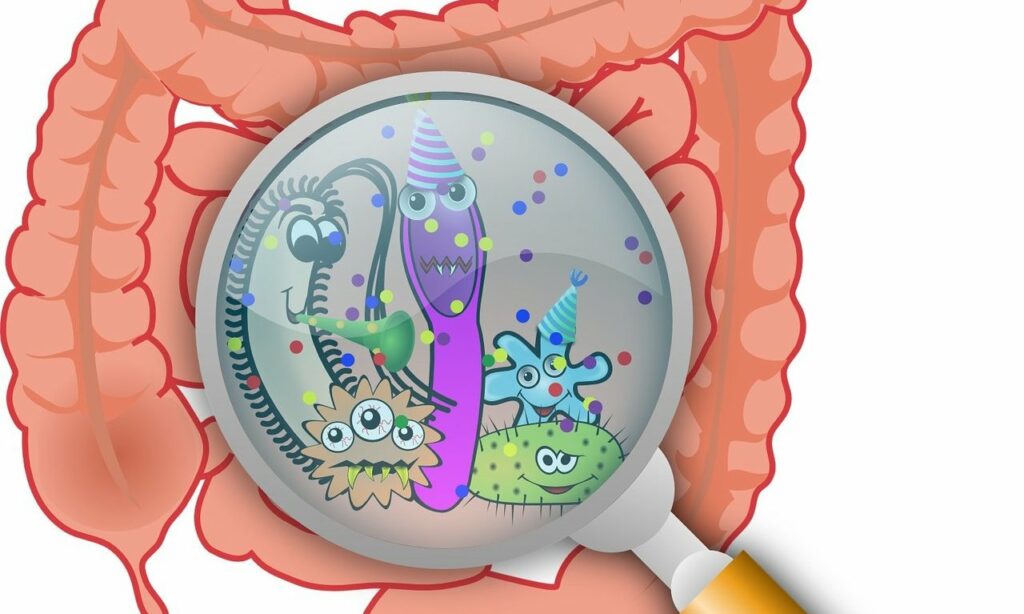The gut microbiome consists of various bacteria, fungi, and other microorganisms that reside in the digestive tract, with their composition varying among individuals. The gut microbiome can affect the overall well-being of a person, believed by some experts by modulating metabolism, immune function, and mental health. Energy metabolism is affected by the gut microbiome by regulating glucose metabolism, appetite, and fat storage. Studies have shown that changes in the composition and function of gut microorganisms are associated with diabetes and obesity.
More recent studies suggest that gut microbiome composition can predict people’s response to weight loss. Recently investigation was made by researchers at the Institute for Systems Biology on how differences in gut microbiota composition may influence the body’s response to weight-loss interventions.
Genes were identified by the researchers that were most abundant in a person’s gut microbiota before they participated in a weight loss program. The researchers were able to infer the functional profile of the entire gut microbiome based on the biological functions that these genes perform. It was found that at the onset of the weight loss program, the active profile of gut microbiota genes predicted an individual’s ability to lose weight.
There was a difference in the abundance of microbiome genes between the people who lost weight and those who were resistant to weight loss. These genes, scientists say, affect metabolism. The number of preclinical trials in animal models suggests a causative role for the gut microbiome; human data remain associative to date.
The current study by Diener et al. contributes to the understanding of human microbiome contributions to dietary responses. For this, a set of microbiome features was identified associated with dietary weight loss in humans. The study lead author said this work might lead to diagnostic for identifying people who may need more drastic interventions or people likely to respond to mild lifestyle interventions to lose weight. These results hint at genes and orgasms responsible for weight loss success or resistance. Future interventions will be guided by this that are aimed at bringing weight loss-resistant microbiomes into weight loss-permissive microbiomes.
The researcher analyzed in the present study data from 105 individuals. These people had enrolled in a commercial behavioral wellness program. Information on the participants was collected by the researchers, including their body mass index and weight. The blood samples from baseline and 6–12 months after the program began were investigated by the researchers. At the onset of the wellness program, dietary information and stool samples were collected.
Blood samples were used to evaluate the levels of various metabolites and proteins, and the stool samples were used to determine gut microbiota composition and function. Differences in the function of the gut microbiota were assessed by the researchers using metagenomic analysis. The prediction of the function of the entire gut microbiome can be made by identifying the most abundant genes.
Among the 105 participants, 48 individuals lost at least 1% of their weight per month, whereas the remaining 57 did not lose any weight. Fifteen individuals were identified as the researchers who lost the most significant amount of weight, and the ten people in the no-weight-loss group showed the least significant change in their weight.
By using this subgroup of 25 individuals, the researchers determined gut microbiome composition and function. To examine the association between weight loss and dietary patterns and blood metabolites and proteins, the researchers used samples from all 105 individuals. After reviewing the data from all the participants, the researchers found that individuals with a higher BMI at onset lost more weight.
It is a well-known association between high BMI and weight loss. The researchers wanted to find the factors that predicted weight loss independent of BMI. This is because the initial BMI could distort or mask the potential association between weight loss and other baseline factors. After controlling for the effect of BMI, the researchers conducted their subsequent analysis.
The blood samples collected before and after the weight loss intervention, the changes in the levels of metabolic markers were compared by researchers in the weight loss and no-weight-loss groups. An increase in adiponectin levels was found in the weight loss group compared to the stable weight group. Fat issues secrete the hormone adiponectin, and weight loss is associated with an increase in the levels of this protein. The weight loss group showed a decrease in the level of six proteins. These six proteins scientists say that is associated with inflammation, obesity, and other metabolic disorders. With an improvement in the metabolic and immune profiles of the individuals, weight loss was associated.
The researchers, after controlling for baseline BMI, age, and sex, analyzed the association between various features measured at baseline and weight loss. Gut microbiome composition and function, metabolite levels, blood protein, dietary patterns are included in the baseline features. Baseline dietary patterns or blood metabolite levels were not correlated with the extent of weight loss researchers found. The resistance to weight loss was positively associated with the levels of only one obesity-associated protein in the blood, the KIT ligand. With the initial BMI of the participants, several baseline features were associated.
No association was found by the researchers between microbiome composition and weight loss. The weight loss was associated with levels of 31 microbiome genes. The class of microbiome genes which was found in huge numbers in the weight loss group was related to the synthesis of bacterial cell walls. During bacterial replication, increased synthesis of cell walls occurs. The weight loss group had bacterial replication rates high as compared to the no-weight-loss group.
The study had certain limitations, which the authors acknowledged. Baseline dietary patter was only taken into this study, and detailed dietary records were not tracked throughout the entire duration of this study. The researchers hope that future studies will find this longitudinal dietary data to better delineate between the influence of dietary variation and baseline gut microbiomes in predicting weight loss responses.
The researchers are hoping to carry the research into a larger group of participants and develop personalized and diagnostics interventions to help weight loss. In the personalized interventions, predictive models will be required for how an individual’s microbiome responds to dietary inputs. Currently, they are building on these models.

